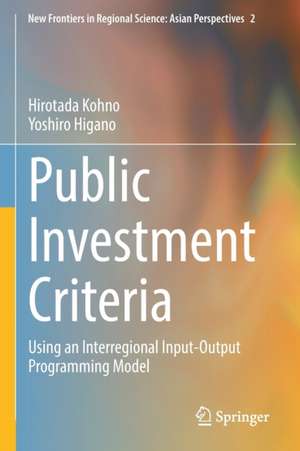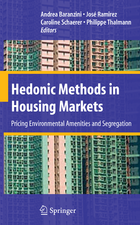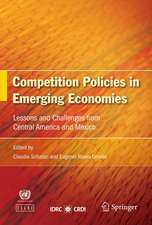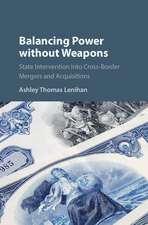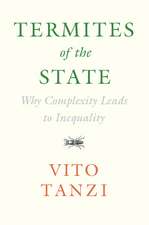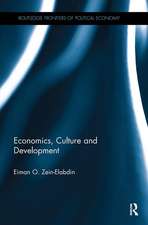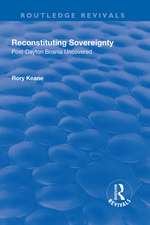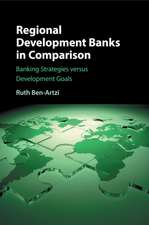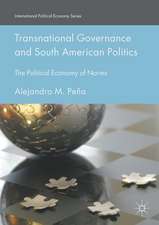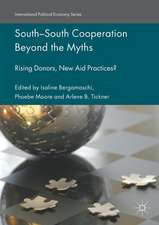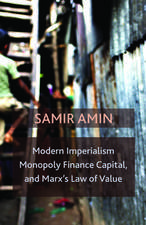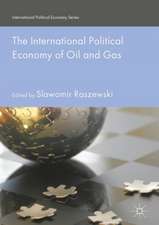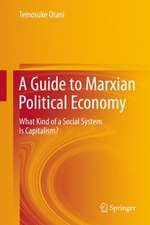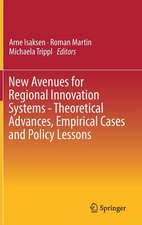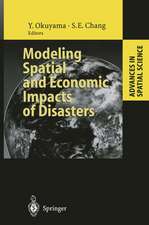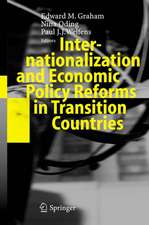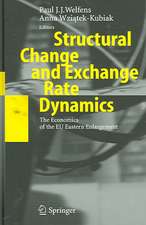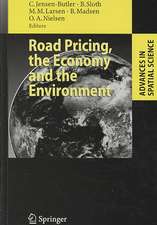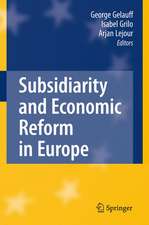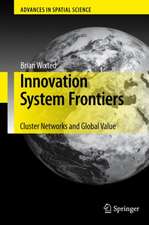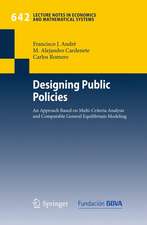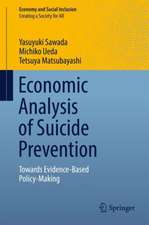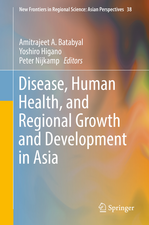Public Investment Criteria: Using an Interregional Input-Output Programming Model
Autor Hirotada Kohno, Yoshiro Higanoen Limba Engleză Paperback – 19 ian 2023
This volume presents the most robust and useful methodology for the derivation of investment criteria for the evaluation and planning of public investment projects – public investment criteria. The methodological approach solves inherent defects of traditional methodology, namely an ad hoc application of the benefit-cost analysis in the static content.
Although this approach originated in the water resources development project of the Harvard group, the authors’ methodology has achieved a discrete and dynamic inter regional input-output programming model by which: (i) establishment of priorities among potential investment targets by taking account of economic benefits that are brought by implementation of a set of selected projects, and diffusing into the whole national economy, and (ii) rational allocation of limited public funds to the selected investment projects are consistently made, based on the opportunity cost criteria in the dynamic content. As these benefits make up a source for the stream of further created capital funds for public as well as private sectors over the planning time horizon, optimal re-investment of thus created capital funds are solved recursively in the endogenous model by approaching the turnpike path of the whole national economy. As an optimal solution, the allocated levels for trunk expressway network as well as for other transport facilities, which are balanced with the allocation for industrial capital formation, are obtained by period and by region. In the background of these processes, the imputed price and opportunity costs as a sort of contemporary “god” are always latent.
Readers with basic mathematical knowledge will learn functional and practical meaning of the opportunity costs (and the imputed price) in the evaluation and planning of investment. Conquering this small obstacle will be a source of strong self-confidence for society, a worthwhile objective. Other applications of the methodology are also included in this book, which is helpful for practitioners frequently using the feasibility study method as well as experts who wish to understand the theoretical arguments related to public investment criteria. As one of the applications, there is a numerical solution of a composite transport system in which the amounts of roads, railways, and ports are derived quantitatively, not qualitatively. These are results of authentic public investment criteria that are built in the inter-regional input-output programing model.
| Toate formatele și edițiile | Preț | Express |
|---|---|---|
| Paperback (1) | 707.46 lei 6-8 săpt. | |
| Springer – 19 ian 2023 | 707.46 lei 6-8 săpt. | |
| Hardback (1) | 714.02 lei 6-8 săpt. | |
| Springer – 4 ian 2022 | 714.02 lei 6-8 săpt. |
Preț: 707.46 lei
Preț vechi: 832.30 lei
-15% Nou
Puncte Express: 1061
Preț estimativ în valută:
135.37€ • 147.51$ • 114.07£
135.37€ • 147.51$ • 114.07£
Carte tipărită la comandă
Livrare economică 23 aprilie-07 mai
Preluare comenzi: 021 569.72.76
Specificații
ISBN-13: 9784431569077
ISBN-10: 4431569073
Pagini: 484
Ilustrații: XXVI, 484 p. 1 illus.
Dimensiuni: 155 x 235 mm
Greutate: 0.71 kg
Ediția:1st ed. 2022
Editura: Springer
Colecția Springer
Locul publicării:Tokyo, Japan
ISBN-10: 4431569073
Pagini: 484
Ilustrații: XXVI, 484 p. 1 illus.
Dimensiuni: 155 x 235 mm
Greutate: 0.71 kg
Ediția:1st ed. 2022
Editura: Springer
Colecția Springer
Locul publicării:Tokyo, Japan
Cuprins
Chapter 1: Public Investment Criteria: A Tentative Specific Survey on the Benefit-Cost Analysis in the Early Years.- Chapter 2: Economic Effects of Mei-Shin and To-Mei Expressways Based on the World Bank Formula of Fifty Years Ago.- Chapter 3: Generalized Benefit-Cost Criteria: Public Investment Criteria When the Benefits are Previously Measured.- Chapter 4: Optimum Allocation of the Capital Funds to the Transportation Infrastructures Using the Interregional Input-Output Programming Model (Part I): Specification with 5 regions, 5 industries, and 3 transport modes.- Chapter 5: Optimal comprehensive transport system and development of the model.- Chapter 6: Optimal Allocation of the Public Funds to the Transportation Infrastructures Using the Interregional Input-Output Programming Model (Part II): Specification with 10 regions, 10 industries, and 9 transport modes.- Chapter 7: Optimal planning of Asian Expressway Network with dynamic interregional input-output programming model.- Postscripts.- Acknowledgements.
Notă biografică
Emeritus Professor, The University of Tsukuba, Japan
Textul de pe ultima copertă
This volume presents the most robust and useful methodology for the derivation of investment criteria for the evaluation and planning of public investment projects – public investment criteria. The methodological approach solves inherent defects of traditional methodology, namely an ad hoc application of the benefit-cost analysis in the static content.
Although this approach originated in the water resources development project of the Harvard group, the authors’ methodology has achieved a discrete and dynamic inter regional input-output programming model by which: (i) establishment of priorities among potential investment targets by taking account of economic benefits that are brought by implementation of a set of selected projects, and diffusing into the whole national economy, and (ii) rational allocation of limited public funds to the selected investment projects are consistently made, based on the opportunity cost criteria in the dynamic content. As these benefits make up a source for the stream of further created capital funds for public as well as private sectors over the planning time horizon, optimal re-investment of thus created capital funds are solved recursively in the endogenous model by approaching the turnpike path of the whole national economy. As an optimal solution, the allocated levels for trunk expressway network as well as for other transport facilities, which are balanced with the allocation for industrial capital formation, are obtained by period and by region. In the background of these processes, the imputed price and opportunity costs as a sort of contemporary “god” are always latent.
Readers with basic mathematical knowledge will learn functional and practical meaning of the opportunity costs (and the imputed price) in the evaluation and planning of investment. Conquering this small obstacle will be a source of strong self-confidence for society, a worthwhile objective. Other applications of the methodologyare also included in this book, which is helpful for practitioners frequently using the feasibility study method as well as experts who wish to understand the theoretical arguments related to public investment criteria. As one of the applications, there is a numerical solution of a composite transport system in which the amounts of roads, railways, and ports are derived quantitatively, not qualitatively. These are results of authentic public investment criteria that are built in the inter-regional input-output programing model.
Caracteristici
Explains how the trade pattern among regions is variable and is endogenously determined by the impact of public investments such as highways and high-speed railways Demonstrates that the public investment pattern reflects the opportunity cost of the assigned budget that could be spent for varieties of other investment targets Shows that by analyzing calculated opportunity cost, imputed price, and costate variables, the essence of the comprehensive programming model can be understood
